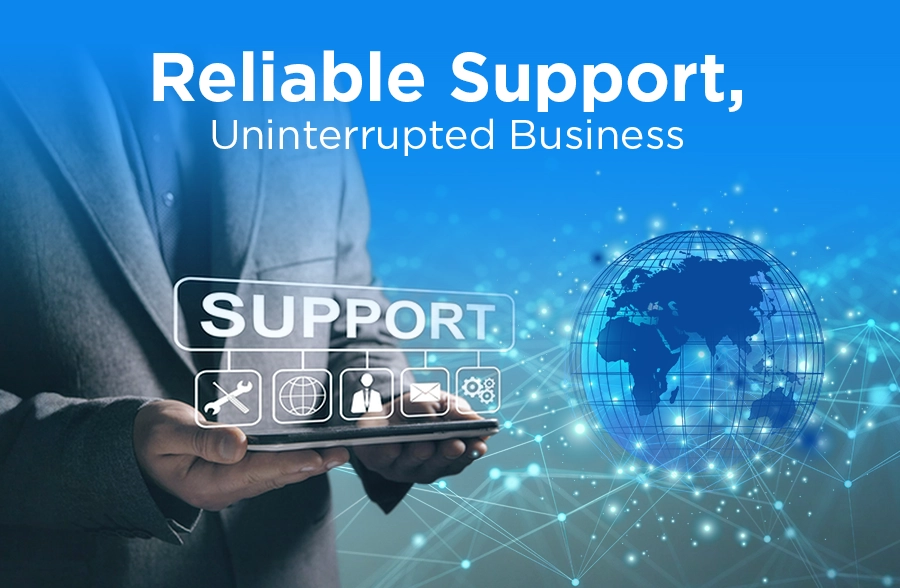Schedule a FREE call with our outsourcing expert now and get a precise quotation that meets your requirements. Don't wait - get started today!
Every interaction with your audience leaves an impression, whether through a social media post, a product review, or a customer comment. But here’s the catch—what happens when that interaction turns harmful?
Imagine scrolling through your company’s social media platform only to find hate speech or false claims tied to your brand. It’s not just uncomfortable; it’s dangerous. Content, primarily user-generated content, can build trust or tear it apart.
One harmful comment can snowball into a crisis, and recovery becomes a challenge without the resources. Let’s break down the risks of ignoring content moderation and explore why it’s a game-changer for SMEs. Ready? Keep reading—you might be surprised by what’s at stake
Different Types of Content to Watch Out For
Businesses deal with various types of content, such as:
- Text: Reviews, comments, or blogs.
- Images: Photos or memes.
- Videos: Tutorials or advertisements.
Some of this content can be inappropriate or offensive. Detecting it early is key.
The Shocking Risks of Ignoring Content Moderation
Ignoring content moderation could lead to more than just bad PR. Here are the risks SMEs face.
1. Legal Consequences
Did you know some countries hold platforms accountable for harmful content? A recent study found that 65% of businesses faced legal issues due to insufficient content moderation. Staying compliant with regulations is not optional.
2. Brand Reputation Damage
One offensive comment on your social media platform can go viral and damage your brand. SMEs don’t always have the resources to recover from such hits.
3. Loss of Customer Trust
Customers expect a safe and respectful environment. If they encounter harmful content, they might never return. Worse, they could share their negative experience publicly.
4. Financial Losses
Fines, lawsuits, or boycotts—these are just a few ways ignoring moderation can hurt your bottom line. SMEs operating on tight budgets can’t afford these risks.
How to Effectively Moderate Content for SMEs
Content moderation doesn’t need to be overwhelming. Here’s how SMEs can manage it efficiently.
1. Identify What Needs Moderation
Not all platforms require the same level of moderation. Start by analyzing your business model. Do you run a review site, a marketplace, or a social media platform? This will help you decide which types of content to prioritize.
2. Set Clear Policies and Standards
Define what’s acceptable on your platform. Be specific. Instead of “No offensive language,” outline examples. Share these rules with your team and users
3. Leverage Technology
AI tools can quickly detect harmful content. However, they’re not foolproof. Combine technology with human oversight for better results
4. Train Your Team
Your team must understand your community standards. Regular training ensures consistency in moderating content.
Why Does Content Need To Be Moderated?
Modern business models thrive on content, but only when it’s managed effectively. Moderation ensures that your content aligns with your brand values and maintains a safe, welcoming environment for your customers. For SMEs, it’s an investment in protecting your reputation and fostering long-term growth.
1. Content is the bridge between businesses and customers
Businesses rely on content to build relationships. Blogs inform customers about products or services. Social media posts create engagement and conversations. Reviews establish trust by providing authentic feedback.
For SMEs, content can help level the playing field with larger companies. By sharing valuable and relatable content, you can stand out and build loyalty among your target audience.
2. The Double-Edged Sword of User-Generated Content
User-generated content (UGC) is free and authentic, which makes it highly valuable. When customers share positive reviews or creative posts about your brand, it’s like free marketing. However, UGC is unpredictable.
Unmonitored UGC can include misleading information, harmful content, or even hate speech. For instance, a single negative or inappropriate comment on your social media platform can escalate into a public relations crisis. For SMEs, recovering from such incidents can be costly and time-consuming.
3. Content shapes the perception of your brand
Every piece of content reflects your brand’s values, whether you create it or your users do. Positive content builds trust, but harmful or offensive material can quickly destroy it.
Without proper moderation, businesses risk being associated with negative content, even if they didn’t create it. This can affect customer trust, partnerships, and even future business opportunities.
The Hidden Challenges of Content Moderation for SMEs
Managing online content is critical for SMEs, but it comes with unique challenges. Balancing engagement, compliance, and resource allocation requires careful planning and execution.
1. Limited Resources
Unlike large companies, SMEs often lack dedicated teams or tools for content moderation. This makes it hard to monitor and address inappropriate or harmful content effectively.
2. Legal and Compliance Risks
SMEs must navigate complex regulations, such as data privacy laws and content guidelines. Failing to comply can lead to penalties or legal issues.
3. Maintaining Brand Reputation
Unmoderated content can harm an SME’s image. Ensuring user-generated content aligns with the brand’s values is vital for maintaining trust and credibility.
Protect Your Brand Today
Content moderation isn’t just about avoiding risks—it’s about building trust. Let Magellan Solutions help you create a safe online environment. Book your FREE 60-minute business consultation today! We’ll identify your needs and show you how our content moderation services can elevate your business. No commitments, just practical solutions. Let’s protect your brand and foster a community your customers love.
















